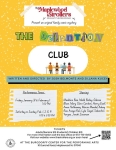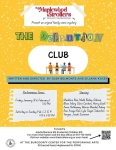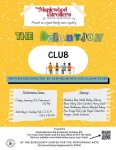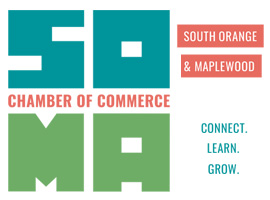Best personal finance app for computer
I have used You Need a Budget successfully for several years. You might also want to check out Mint.
Quicken is now a subscription service, so you pay an annual fee and automatically get updates whenever they come out. Hate it or love it, but they really don't give you a choice. I'm still using it because I am pretty invested in it at this point.
sac said:
Quicken is now a subscription service, so you pay an annual fee and automatically get updates whenever they come out. Hate it or love it, but they really don't give you a choice. I'm still using it because I am pretty invested in it at this point.
One of my complaints about the online stuff years ago was how it entered stuff. If my husband went to Dunkin Donuts it would show something like DD/BR #126. Annoying, but I could live with that, I have entered the category and from then on every time he goes to THAT particular DD it recognizes it and puts it in the right category. If he goes to the DD across town, I have to enter the category manually.
For someone who shops at the same stores and eats at the same places day in and day out this is just a minor inconvenience, you’d quickly have your two Dunkin Donuts and three McDonalds entered. But my husband is a medic and is all over the freakin place. I swear he’s been to more DD’s and fast food joints than actually exist. So for me it was actually easier to just enter every Dunkin Donuts entry as a generic Dunkin Donuts so that the expense category would auto fill.
If they’ve updated that so that I don’t need to recategorize every new branch of a chain then I might be willing to spring for the subscription and try. But if it’s easier to keep manually entering every entry then I might as well try one of the other, free, programs out there
I'm trying Mint, but not thrilled. Maybe I am not using it correctly.
One thing I liked about Quicken was that I could enter future transactions and have them deducted from the balance. So when I checked Quicken even if I had a balance of $2,000 that day, I could see that in ten days my balance was going to be $300 due to upcoming bills, and I wouldn't have to do any mental arithmetic to figure that out. It was especially useful for checks, so I didn't have to keep mental tabs on how much float was out there. And for recurring bills where I didn't know the exact amount (gas, electric, etc) I would put in an estimate and correct it when the actual bill came in. I can't seem to do that in Mint, or at least I can't seem to figure out how to do that.
In fact, I just wrote a check for my televisit co-pays and am about to mail it out. I put it in Mint and it seems to have just disappeared. Considering the state of US mail at the moment, who knows how long it will be until that check is cashed.
Mint is great at putting expenses into categories automatically. I've had to correct a few things, but overall it gets it right. But other than telling me how much I already spent, it doesn't seem more useful than looking at my bank balance and seeing how much I have right now. I don't need an app to tell me what my bank already does, I need to know how much I have available until the next paycheck is deposited after upcoming expenses are accounted for.
For the way you're budgeting, YNAB might be a better fit -- it's essentially an envelope system. You can try it free for 34 days and if you decide to buy and use my referral link we both get a free month.
https://ynab.com/referral/?ref=2fcsevZOfpTt1q5T&utm_source=customer_referral
j_r said:
For the way you're budgeting, YNAB might be a better fit -- it's essentially an envelope system. You can try it free for 34 days and if you decide to buy and use my referral link we both get a free month.
https://ynab.com/referral/?ref=2fcsevZOfpTt1q5T&utm_source=customer_referral
Does it take float into account? Not budgeting for upcoming expenses, but taking into account items I’ve already paid but that haven’t hit my balance yet?
For example, I paid some large bills on Thursday. They just hit me BOA balance today, and still haven’t shown up in my Mint app.
My 2012 Quicken program allowed me to put in things that hadn’t even hit the bank yet, so even though my real time balance showed money, looking at the bottom of the register in Quicken I could see that by next pay day the balance would be quite low and I could plan accordingly. THIS is the main thing I need.
You can enter transactions as they happen and approve or correct them after they clear your bank account. (There are some instructional videos on YouTube that can probably do a better job than I am doing at explaining how YNAB works.)
j_r said:
You can enter transactions as they happen and approve or correct them after they clear your bank account. (There are some instructional videos on YouTube that can probably do a better job than I am doing at explaining how YNAB works.)
I’ll have to look for them. I used the link you provided. It doesn’t seem very intuitive to use at all, but I’ll poke around and give it a few weeks before I decide to stick with it or not. I might just not be used to the interface
Employment Wanted
Latest Jobs
Employment Wanted
Help Wanted
-
Jan 20, 2025 at 7:02am





















I have Quicken from something like 2012. I never did any of the updates, but I don't use the automatic functions where it downloads bank info, I input my debits and credits manually, so not updating didn't seem like a big deal.
We bought a new computers, and I'm not even sure if I can transfer the program over to the new computer, who knows where the disk is, and I'm not even sure our new computer has a CD slot The version I have is so old that maybe it isn't even worth trying.
The version I have is so old that maybe it isn't even worth trying.
Should I buy the shiny new version of Quicken, or are there other home finance/budgeting programs that I should consider instead.
Ease of use is my number one criteria. I don't care how awesome a personal finance program is if I need a masters to understand how to use it. I'm looking for something a high school student could understand, and not an AP student, think more along the lines of the student who skipped English class to smoke behind the gym. That's part of why I liked the old Quicken, I found it easy to use.